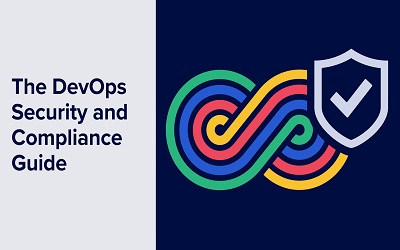| Outcomes |
- Understand DevOps Security Fundamentals Learners will be able to explain the importance of integrating security and compliance into the DevOps lifecycle.
- Identify Risks and Vulnerabilities Learners will gain the ability to recognize common security risks, vulnerabilities, and compliance challenges in DevOps environments.
- Apply Secure DevOps Practices Learners will be able to implement secure coding standards, secrets management, and automated security checks within CI/CD pipelines.
- Ensure Compliance with Industry Standards Learners will learn how to integrate regulatory compliance requirements (e.g., GDPR, HIPAA, PCI-DSS) into DevOps processes
- Use Tools for DevOps Security and Compliance Learners will acquire practical knowledge of tools for vulnerability scanning, compliance validation, and monitoring.
- Develop Security-First Mindset in Teams Learners will be able to promote a culture of shared responsibility, ensuring developers, operations, and security teams collaborate effectively.
|
|
|
| Requirements |
- Integration of Security into CI/CD Pipelines Security checks (vulnerability scanning, code analysis, compliance validation) must be automated and embedded in the software delivery pipeline.
- Identity and Access Management (IAM) Implement role-based access control (RBAC), least privilege policies, and multi-factor authentication (MFA) to protect systems and data.
- Vulnerability Scanning and Threat Detection Continuous scanning of applications, infrastructure, and dependencies to identify and remediate risks early.
- Compliance Enforcement Automated compliance checks aligned with industry standards (e.g., GDPR, HIPAA, PCI-DSS, ISO 27001). Maintain audit trails and evidence for regulatory reporting.
- Secure Coding Practices Developers must follow secure coding guidelines, perform code reviews, and use tools for static and dynamic application security testing (SAST/DAST).
- Secrets Management Use secure vaults or key management systems (e.g., HashiCorp Vault, AWS KMS) to protect passwords, API keys, and certificates.
- Monitoring and Logging Real-time monitoring, centralized logging, and anomaly detection to quickly identify and respond to incidents.
- Incident Response and Recovery Plan Clearly defined processes for handling security breaches, including detection, containment, recovery, and post-incident analysis
- Continuous Training and Awareness Teams must stay updated on emerging threats, compliance requirements, and best practices for DevSecOps.
- Infrastructure as Code (IaC) Security Validate and secure IaC templates (Terraform, CloudFormation, etc.) to prevent misconfigurations and policy violations.
|
|
|


 0
0 